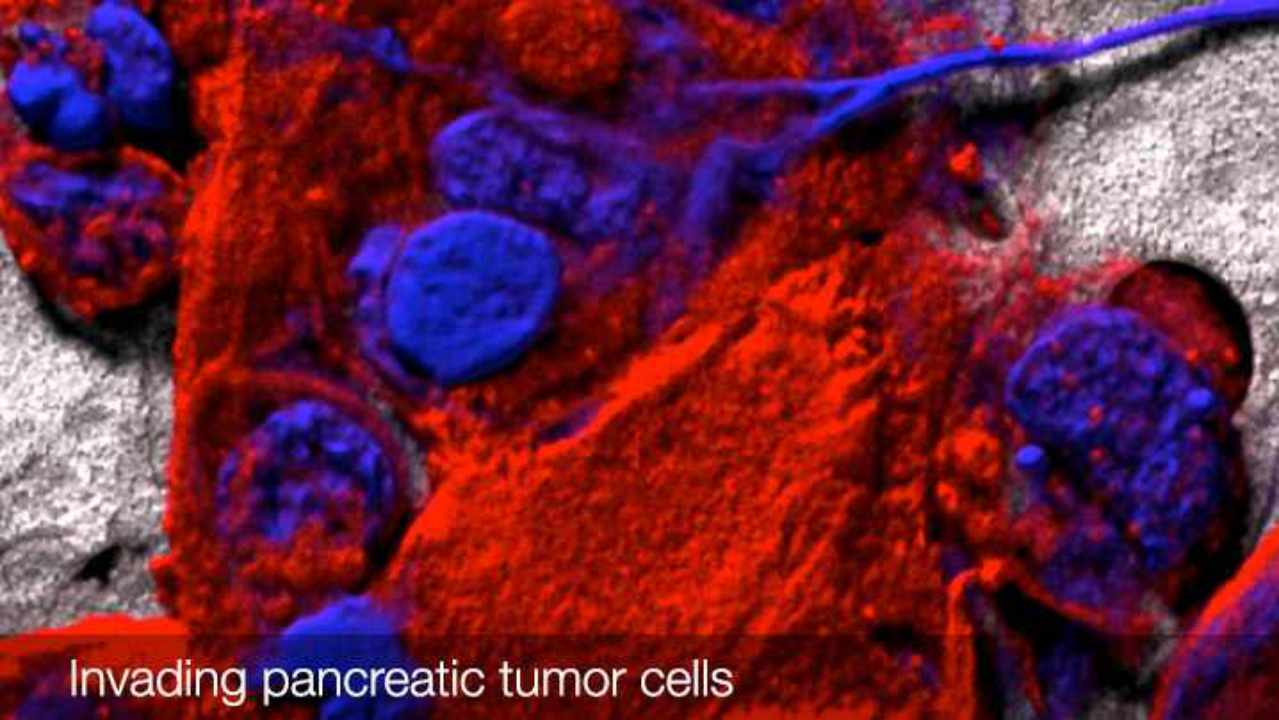-
Cancer
Mayo Study: Radiation an Important Addition to Treatment for Pancreatic Cancer Surgery Candidates
ROCHESTER, Minn. — Radiation therapy was associated with a lower risk of cancer recurrence in pancreatic cancer surgery patients, making it, like chemotherapy, an important addition to treatment, Mayo Clinic research found. Whether radiotherapy helps patients after pancreatic cancer surgery has been a long-standing question, and the findings suggest that it does, says senior author Christopher Hallemeier, M.D., a radiation oncologist at the Mayo Clinic Cancer Center. The study is published in the American Society for Radiation Oncology’s International Journal of Radiation Oncology, Biology, Physics.
The researchers studied 458 patients who had pancreatic cancer surgery at Mayo Clinic between March 1987 and January 2011. Of those patients, 378 received chemotherapy and radiation therapy after surgery, and 80 had only chemotherapy after their operations.
Eighty percent of those who received chemotherapy and radiation after surgery had no recurrence of cancer within the area targeted by the radiation, the tumor bed and lymph nodes, within five years after diagnosis. That compared with 68 percent of those who had chemotherapy only following their operations. Additionally, patients who received radiotherapy had longer survival times.
Over the past five years or so, the trend has been toward providing chemotherapy and radiation before surgery in an increasing number of patients with operable pancreatic cancer, Dr. Hallemeier says. He and his colleagues plan research to study the benefit of that, but first wanted to address the longtime question of whether radiation helps after surgery.
“The role of radiation therapy in operable pancreatic cancer has been somewhat controversial. There have been some studies that have shown a benefit and some studies that have not shown a benefit,” Dr. Hallemeier says.
Media contact: Sharon Theimer in Mayo Clinic Public Affairs, 507-284-5005 or newsbureau@mayo.edu
“Our large study suggests that adding radiation treatment in combination with surgery and chemotherapy reduces the rate of cancer recurrence.”
Pancreatic cancer is the fourth-leading cause of cancer death, and it is on the rise. About 50,000 people are diagnosed with pancreatic cancer each year in the U.S., and in about half, the cancer has spread elsewhere in the body, ruling out surgery. Historically, only about 7 percent of pancreatic cancer patients have lived at least five years after diagnosis.
Only about 15 percent of patients have cancer isolated within the pancreas, making them candidates for an operation to remove the tumor. In the other 35 percent, the cancer involves critical blood vessels outside the pancreas; in some cases, especially with chemotherapy and radiation before surgery, operations are complex but possible.
“The black and white, ‘surgery yes or no’ that historically has been the first approach, that’s being blurred. We’re realizing that there are patients in the middle of the spectrum who may be candidates for surgery,” Dr. Hallemeier says. “With tailored approaches to treatment before surgery, for example using chemotherapy first to see how the tumor responds, and then selectively using radiation, I think we can personalize treatment for patients who are most likely to benefit.”
The first author is Kenneth Merrell, M.D., a radiation oncology resident.
###
About Mayo Clinic Cancer Center
As a leading institution funded by the National Cancer Institute, Mayo Clinic Cancer Center conducts basic, clinical and population science research, translating discoveries into improved methods for prevention, diagnosis, prognosis and therapy. For information on cancer clinical trials, call 1-855-776-0015 (toll-free).
About Mayo Clinic
Mayo Clinic is a nonprofit organization committed to medical research and education, and providing expert, whole-person care to everyone who needs healing. For more information, visit http://www.mayoclinic.org/about-mayo-clinic or https://newsnetwork.mayoclinic.org/.








